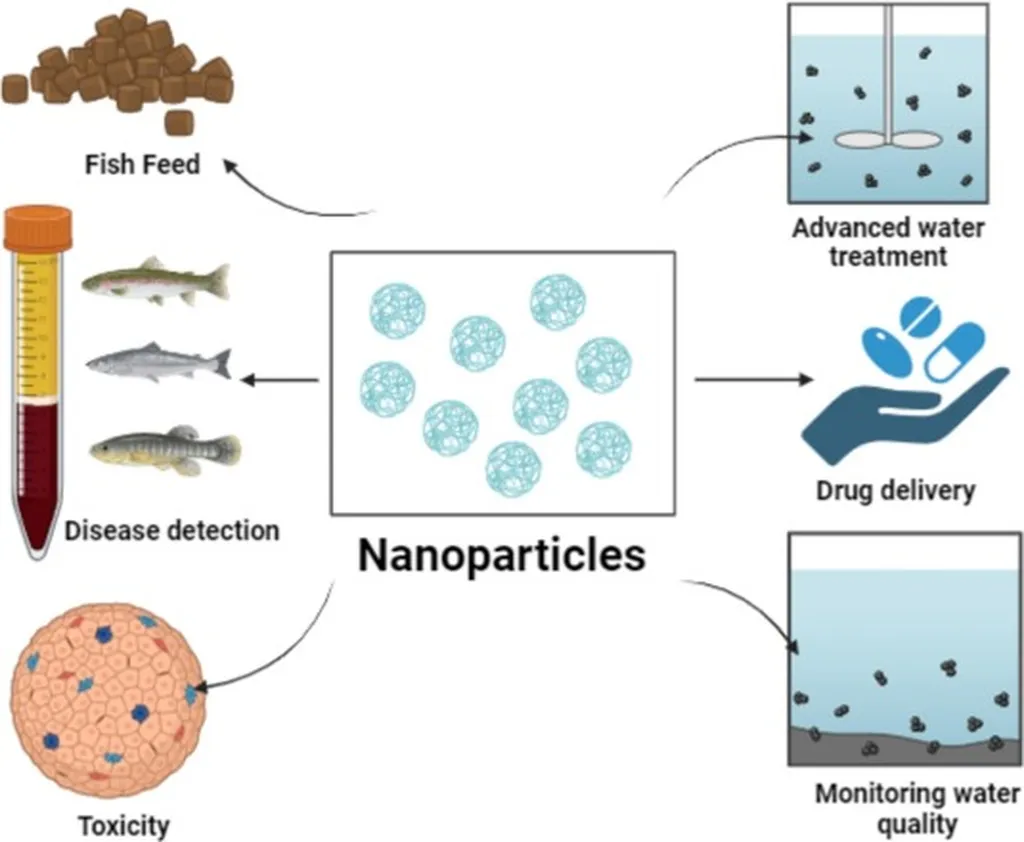In the world of aquaculture, innovation often comes in the smallest of packages. A recent study published in the journal *Aquaculture Reports* (known in English as *Aquaculture Reports*) has shed light on the potential benefits of nano-selenium supplementation in bullfrogs, offering a glimpse into how cutting-edge technology can enhance the health and productivity of farmed aquatic species. The research, led by Chenghang Xu from the Fisheries College at Hunan Agricultural University in China, explores the impact of nano-selenium on the growth performance, oxidative stress, and inflammatory response in bullfrogs, with implications that could resonate throughout the aquaculture industry.
The study focused on 630 healthy bullfrogs, divided into three groups and fed diets supplemented with varying levels of nano-selenium over an eight-week period. The results were striking. Bullfrogs receiving nano-selenium supplements showed significant improvements in average weight gain, total weight gain, and survival rates. “Supplementation of nano-selenium effectively improved intestinal structure and enhanced digestive enzyme activity, thereby facilitating the absorption of nutrients,” Xu explained. This enhancement in nutrient absorption is a critical factor for aquaculture producers, as it directly impacts the growth rates and overall health of the bullfrogs.
One of the most compelling findings was the positive effect of nano-selenium on liver health. The study revealed that nano-selenium supplementation alleviated liver impairment, as evidenced by more structurally intact hepatocytes and reduced cell vacuolization. Additionally, the activity of liver enzymes GOT and GPT was significantly lower in the nano-selenium group, indicating improved liver function. “Dietary nano-selenium intake boosted the antioxidant capacity and relieved inflammatory response of liver and intestine tissues at enzymatic and transcriptional level,” Xu noted. This dual benefit of enhanced antioxidant capacity and reduced inflammation could be a game-changer for aquaculture, where maintaining the health of farmed species is paramount.
The study also highlighted the role of nano-selenium in enhancing the innate immune capacity of bullfrogs. The serum content of acid phosphatase (ACP) and alkaline phosphatase (AKP) was significantly increased with nano-selenium supplementation, suggesting a stronger immune response. This finding is particularly relevant for the aquaculture industry, where disease outbreaks can lead to significant economic losses. By bolstering the immune system of farmed species, nano-selenium could help mitigate the risk of disease and improve overall productivity.
The implications of this research extend beyond the immediate benefits observed in bullfrogs. The use of nano-selenium as a functional feed supplement could revolutionize the way aquaculture producers approach animal health and nutrition. As the demand for sustainable and efficient aquaculture practices grows, innovations like nano-selenium supplementation offer a promising avenue for enhancing the productivity and sustainability of farmed aquatic species.
Chenghang Xu’s research underscores the potential of nano-selenium to improve the health and performance of bullfrogs, with broader implications for the aquaculture industry. As the field continues to evolve, such innovations will be crucial in meeting the growing demand for aquatic products while ensuring the health and well-being of farmed species. The study, published in *Aquaculture Reports*, provides a solid foundation for further exploration into the use of nano-selenium and other advanced technologies in aquaculture.

